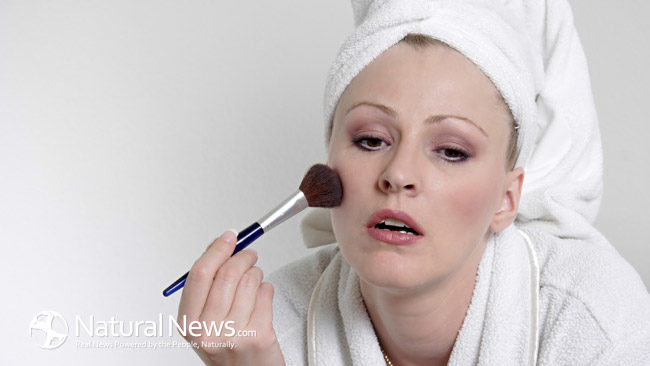Cleaning, an act so simple, can be toxic to the body if done using products containing Benzethonium Chloride. As mentioned previously, it is important to learn natural and safer alternatives for washing your face and cleaning your vegetables to ensure your wellness.
Benzethonium Chloride now replaces Triclosan as the new “antibacterial” agent in cosmetic and commercial soaps. Why? The public has become well aware of the toxicity and dangers triclosan brings to the human body when absorbed via the skin. In an attempt to dupe avid consumers and make their products appear safe, companies are now using Benzethonium Chloride in replacement of triclosan.
What is Benzethonium Chloride?
Benzethonium Chloride, besides being a difficult chemical to pronounce, is a close relative of Benzalkonium Chloride and is typically found in household cleaning products. It is considered to be a part of a quat or quaternary ammonium salt family. Chemicals listed as a quat are used primarily to disinfect and kill bacteria in the home and business setting.
The use of these chemicals are beneficial when used appropriately, such as cleaning used hospital equipment. However, cleansing your face and body with Benzethonium Chloride – not so much a benefit – but rather a disadvantage for your skin.
Why is Benzethonium Chloride Dangerous?
Manufacturers and companies are taking great strides to label Benzethonium Chloride as a natural virus and bacteria killer.
Benzethonium Chloride is not a natural chemical nor is it used in a natural way. It is chemically engineered in a lab with the power to kill bacteria and viruses at the cost of health to consumers using it. The irony is astounding; create a chemical to eliminate the risk of an illness by creating a new health risk.
Health Risks Associated with Benzethonium Chloride
- Asthma
- Hay Fever
- Skin Rashes
- Neurotoxicity
- Eye irritation
- Immune system compromisation
To put the strength of Benzethonium Chloride into perspective, a 0.3% is placed in herpes simplex I topical medication, to treat the virus. The FDA has deemed it safe to include 0.5% of Benzethonium Chloride in cosmetic items and soaps. Why apply a higher percentage of this chemical on your face if you do not have herpes simplex I?
Although the FDA claims there is no evidence of toxicity and harm, countries such as Canada and Japan are currently banning the placement of Benzethonium Chloride in cosmetic products and soaps.
Benzethonium Chloride, has a place in the world, but not at home. Take the time to look through all house cleaning products, cosmetics, and analyze their ingredients. If they contains Benzethonium Chloride, toss them and look for natural alternatives.
If you do not see Benzethonium Chloride listed, you may see some of its alternate names.
Alternate Names for Benzethonium Chloride
- Parasterol
- Alkyl benzyl dimethylammonium chloride
- Alkyl dimethyl benzylammonium chloride
- Benirol
- Cequartryl
- Drapolene
- Enuclene
- Germitol
- Gesminol
- Rodalon
- Ammonyx
- Zephiran chloride
Have you noticed Benzethonium Chloride suddenly appear across commercial soap and cosmetic labels in replacement of triclosan? Avoid these chemicals and secure your long-term health by using natural, organic products.
Sources:
http://www.cleanwelltoday.com/blog/?p=61
http://www.ewg.org/skindeep/ingredient/700675/BENZETHONIUM_CHLORIDE/
http://castilesoap.com/blog/top-chemicals-to-avoid-in-soap
http://www.cdc.gov/niosh/ipcsneng/neng0387.html





